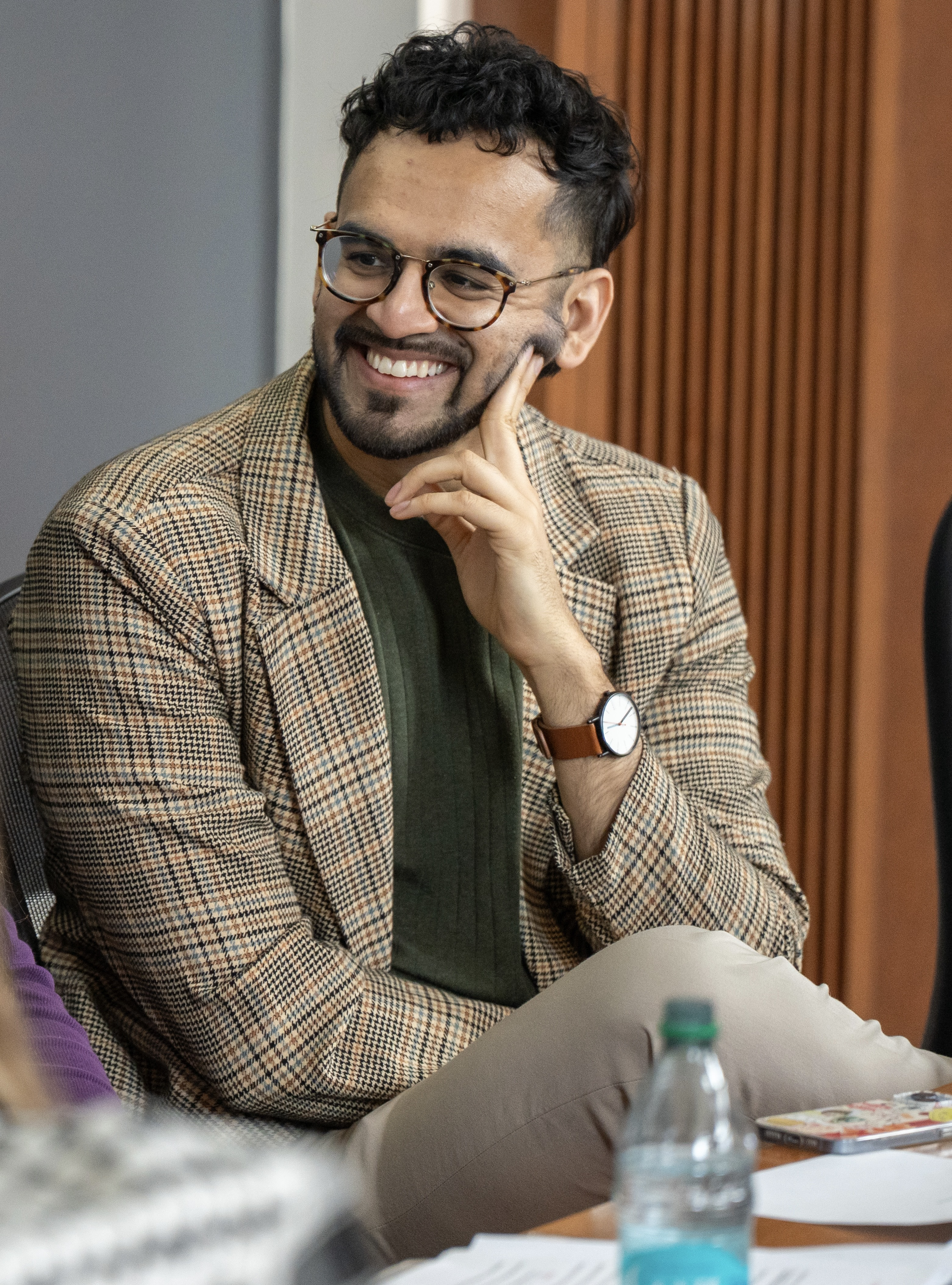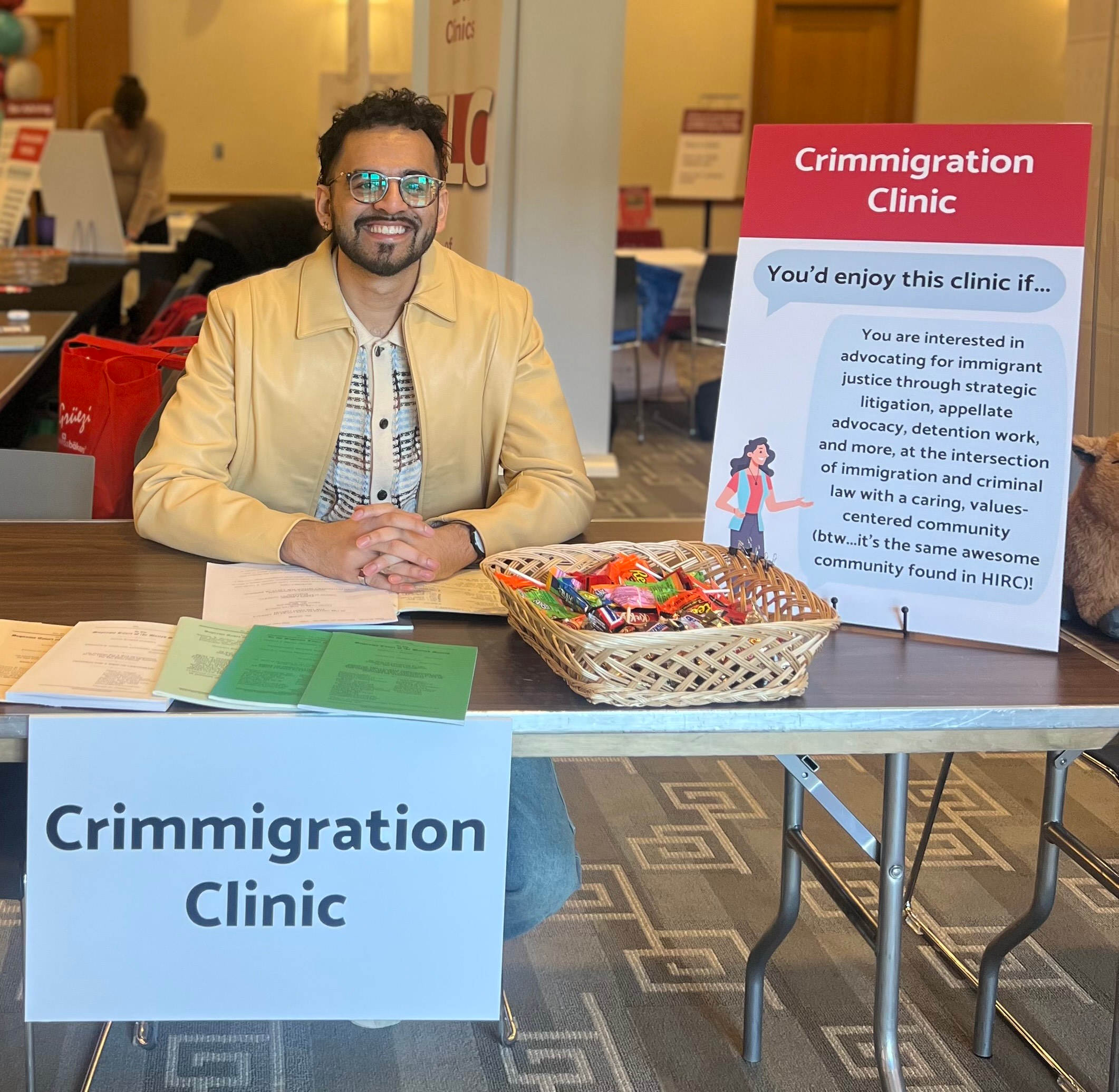By Ibrahim Bharmal J.D./M.P.P. ’25

I was raised in a close-knit immigrant and Muslim community in Southern California, a community that survived the wave of Islamophobia that swept the nation after 9/11 and continued to persevere, administration after administration. By the time I arrived at Harvard, I was no stranger to the reality that our legal systems and institutions do not distribute justice evenly.
Coming into law school I had a clear vision of the type of lawyer I wanted to be: a lawyer for my community. The injustices my community faced weren’t abstract. They were personal, immediate, and deeply entrenched. I hoped that this legal education (and my dual MPP degree!) would prepare me with tools to fight back against these injustices, and to perhaps unroot them from our systems. What I didn’t know then was just how much my understanding of that fight would evolve, and deepen, over the next four years.
The most transformative part of my legal education has been my time in the Crimmigration Clinic. It’s where I found how this area of law, an area I had not anticipated but now cannot imagine my individual practice not having. In short, “crimmigration law” is the study of the overlapping intersections of criminal and immigration law; it’s a thorny, complex, and still relatively nascent in its doctrine. Even judges at the highest levels of our judiciary have expressed exasperation at its opacity, particularly with concepts like the “categorical analysis.” Yet even with its challenges, I feel genuinely drawn to this area of law. Not only does it motivate me personally to advocate for some of our legal systems’ most vulnerable, but its thorniness also keeps me intellectually engaged.
I’ve had the privilege of spending all four semesters of my upper-level years immersed in clinic work, working with every clinical instructor within the Crimmigration Clinic in some capacity. I’ve taken on a range of projects: petitions for humanitarian parole for immigrant veterans, a team-based project that worked on representing detained clients in bond hearings (affectionately dubbed “the VagaBonds”), and, most recently, habeas corpus resources aimed at preventing the out-of-state transfer of detained immigrants.
I feel lucky that my time in the clinic has provided me with valuable lessons and experiences that will form the foundation of my legal practice. Moments I truly consider gifts.
Lessons from the Crimmigration Clinic
First, the clinic has been a front-row seat to the harsh realities of the immigration and criminal legal systems, and how, when intertwined, they become even more unjust. These systems do not only mete out injustice through harsh laws and unforgiving doctrines. They also do so through mundane but deeply dehumanizing bureaucratic indignities: endless wait times, inaccessible communication services, seemingly arbitrary detention standards. These are the mechanisms of oppression that grind people down, slowly but relentlessly.
Second, the clinic has given me some of my fondest memories in law school. I’ll never forget the day my clinic partner, Bridget Pranzatelli, and I secured bond for our first detained client. We picked him up from the detention center, bought him a change of clothes, shared a meal—tacos and Coca-Cola, per his request—and arranged for travel so that he could return to his family and community. That day wasn’t just joyful. It was affirming. It reminded me that while odds are often stacked against our clients, that using every legal tool matters, and it is worth fighting every fight.
Third, I’ve learned how to sustainably define success in a field where adverse outcomes, no matter how hard you fight, are commonplace. I’ve redefined success: no longer is it about the final outcome, but about the integrity of the effort. Did we exhaust every legal tool? Did we represent our client with compassion? Did we elevate their voice, forcing courts and prosecutors to confront the human impact of their decisions? If the answer is yes, then I can rest easy, knowing that this representation was a success.

Finally, I’ve learned to draw strength from unexpected places, chief among them, our clients. Their resilience, patience, and unshakable commitment to justice have grounded me. They’ve reminded me that a client-centered practice means more than respecting their wishes; it means being inspired by their courage, learning from their endurance, and allowing their fight to fortify my own.
I credit the Crimmigration Clinic as the single most valuable academic experience I’ve had in law school. It changed the trajectory of my career, and more importantly, solidified my resolve to serve the most marginalized communities in our legal systems. It introduced me to an intellectually rigorous and deeply personal area of law. It brought me into a community with brilliant, compassionate faculty and peers. And it gave me some of my most blessed, sunshine-filled memories of law school.
As I look to the future, I do so with a full heart and a clear mind. I know who I want to advocate for. I know the kind of law I want to practice. And I know, without a doubt, that this clarity will be the foundation of a long, committed career in service to immigrants and the fight for justice.
Filed in: Clinical Student Voices
Contact Office of Clinical and Pro Bono Programs
Website:
hls.harvard.edu/clinics
Email:
clinical@law.harvard.edu